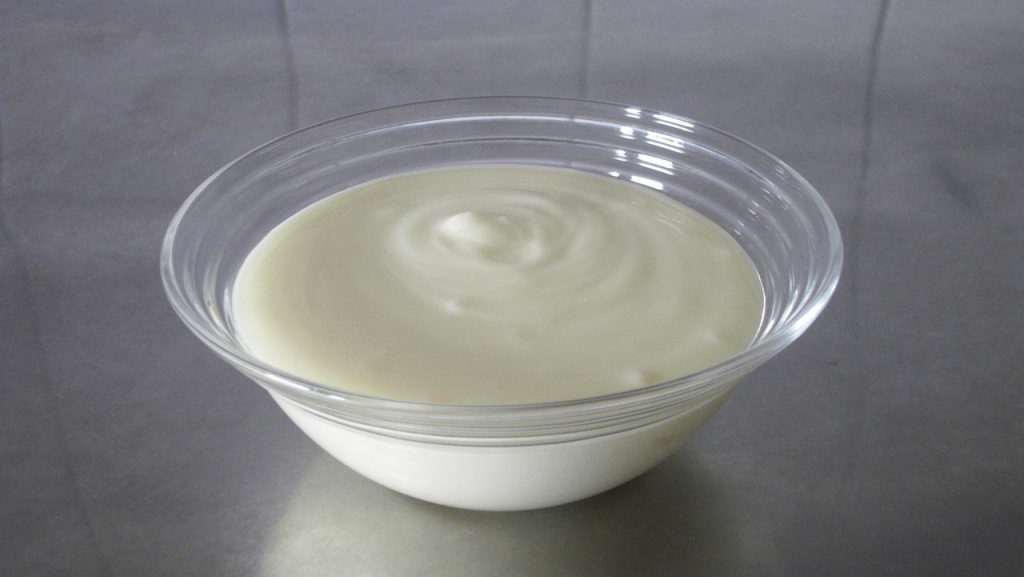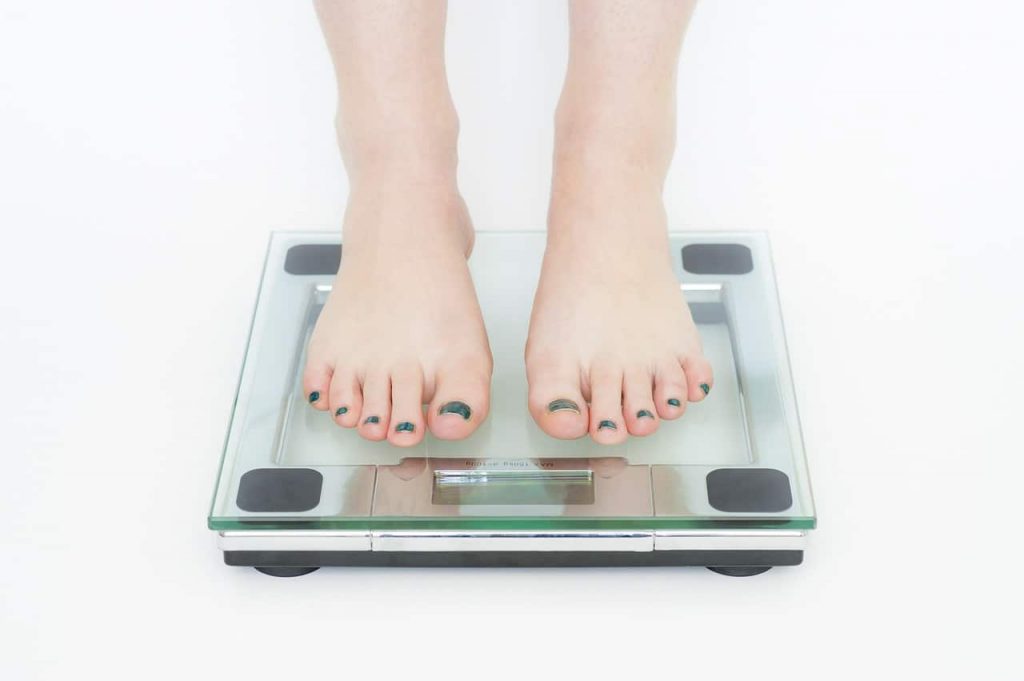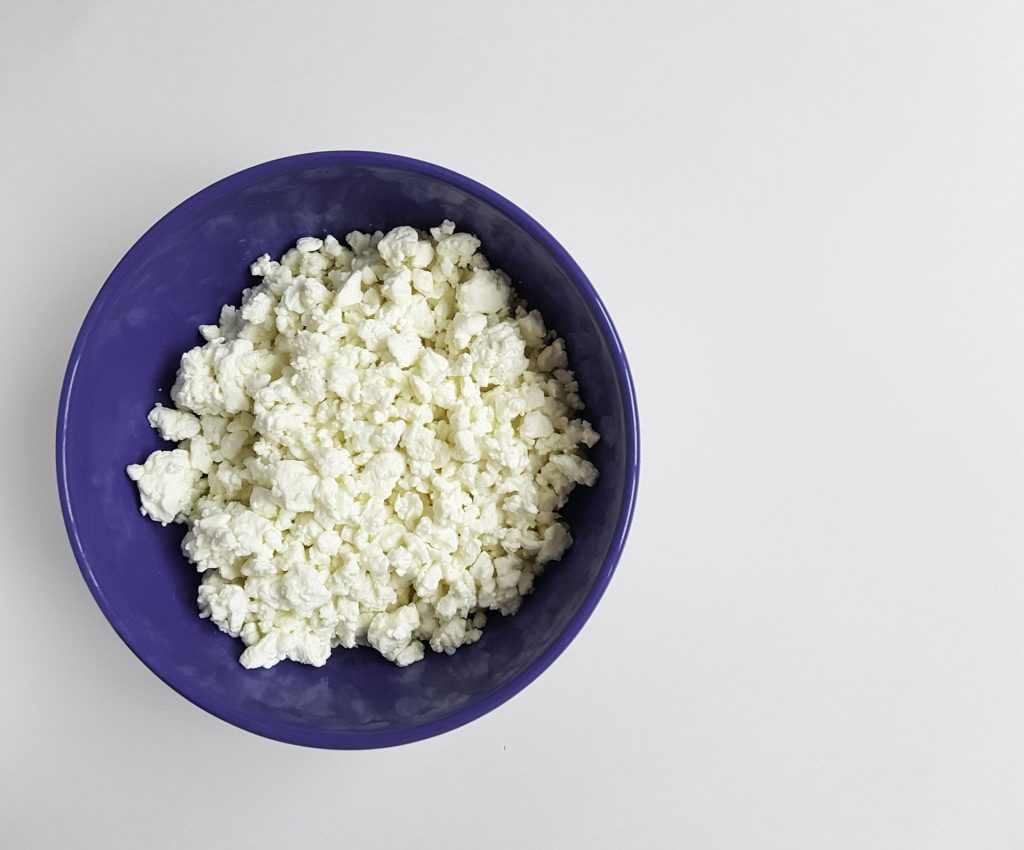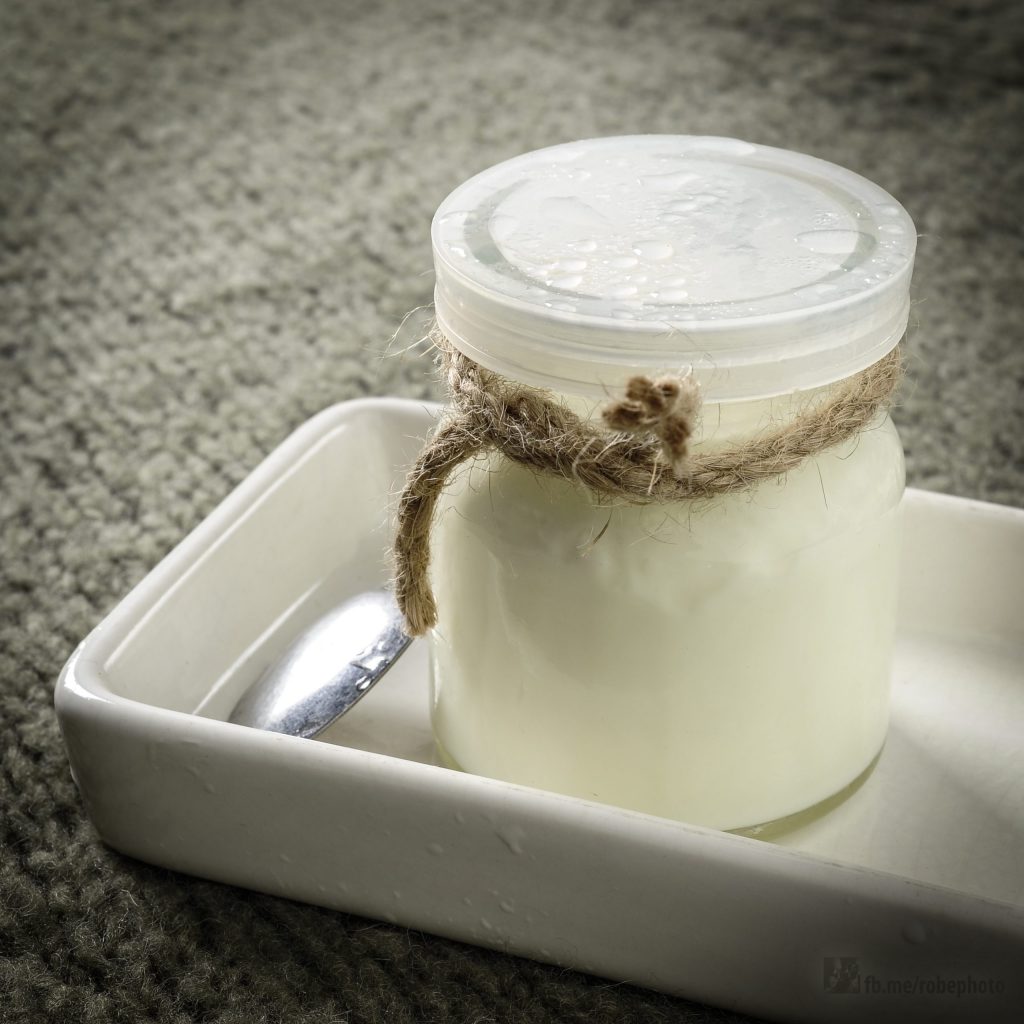From being one of the simplest side dishes, which tastes good no matter what you eat it with, to offering significant health and beauty benefits, curd (or dahi and yogurt as it is known) is among India’s favorite milk-based products. In fact, during the summer months, curd or yogurt becomes even more crucial to tackle the heat and humidity, thanks to its cooling and soothing properties. Let’s dig in to know curd benefits and side effects.
In India, curd or yogurt is used in preparing a lot of marinades, dips, and other dishes across many states. Curd, which is one of the best and popular dairy products, is also considered generally safe for consumption by those who may be lactose-intolerant. Curd or Dahi is produced from a process called curdling, which breaks down the lactose present in milk into lactic acid, thus making it digestible for people who may be unable to break down and digest milk.
Let us look at the impressive health benefits of eating curd daily and beauty benefits of curd in more detail. We also tell you why consuming curd or yogurt daily benefits in the summer months and how it keeps and helps you fight against diseases and infections. Our article sums up information on both the benefits of curd as well as the possible side effects.
Table of Contents
Watch: Curd Benefits (Dahi Or Yogurt)
Nutrition Facts Of Curd | Nutritional Value
| Calories | 98 kcal |
| Total fat | 4.3 g |
| Cholesterol | 17 mg |
| Sodium | 364 mg |
| Potassium | 104 mg |
| Total carbohydrates | 3.4 g |
| Protein | 11 g |
Source: USDA
Curd Or Yogurt Is Probiotic In Nature
Curd is a probiotic-rich nutritional food item, and this makes it great for our overall well-being. Probiotic and nutritional foods like yogurt or curd (dahi) benefits us and help keep our intestines healthy and is found to be an amazing digestive. In recent decades, the importance of a healthy gut has been shown to be directly related to overall health and wellness.
A healthy gut can help keep your immunity up and keep the quality of skin and hair in top shape, among other impressive health benefits. In fact, often weight gain or a struggle to lose weight has been associated with poor digestive system health. People who find it difficult to lose weight, often complain of digestive issues like constipation, gas, and bloating. Dahi can help a great deal to combat these issues.
As thick Curd or yogurt can be prepared at home, it is found to be a highly beneficial product that is available in abundance, and the fact that it is a natural derivative of milk, and does not contain any form of chemical makes it the safest item to consume without hesitation. Remember, a healthy digestive system will keep you away from diseases and infections.

Amazing Health Benefits of Curd
Curd or yogurt is used and consumed in nearly every household due to its various impressive health benefits, and of course, its refreshing flavors loaded with nutrients. Healthy, rich, and creamy in taste, curd can be used and enjoyed in a variety of ways, from beverages to curries and snacks. The probiotic cultures (i.e., good bacteria) present in dahi, responsible for interacting with the inside workings of our body, may help in soothing ailments that plague our system. Here are some important dahi benefits that you must know about :
Also Read: We did an in-depth review to find out the creamiest packaged curd brand.
1. Improves Digestion | Prevents Stomach Related Issues
One of the most important health benefits or advantages of curd is that it is good for your stomach and digestive health and keeps it healthy; as curd contains good bacteria. Thanks to the live cultures (i.e., good bacteria) present in curd, it can help people who are suffering from indigestion or a bad stomach by fastening our body’s mechanism.
Make sure you include curd so the good bacteria help improve your digestive system. We also tell you which food is good and bad for digestion.
2. Relieve Constipation
The other major reason that makes thick curd good for digestion is its ability to reduce the intestinal transit time, which could fasten the process of getting rid of the undigested food; thanks to the good bacteria present in curd. Remember, a healthy digestive system and a healthy stomach will keep you away from many diseases and infections.
Remember, a good digestion system will always help you stay healthy. Getting rid of constipation is of the major benefits of eating curd daily.
Related Reading: We review products over days, and sometimes weeks, so you can shop better. Read our Best Packaged Dahi To Buy Review here.
3. Helps Soothe The Stomach During Diarrhea
By improving our gut activity, consuming curd is found to play an important role in our diet when we are suffering from an upset stomach. This is one of the most important health benefits of curd. Good bacteria helps your overall immunity in place, further helping you fight against numerous diseases and infections.
An upset stomach or a bad digestive system can take away your energy, so make sure you drink lots of chaas (buttermilk), which benefits and helps to keep your stomach healthy and resumes your energy levels.
4. Provides A Stronger Immune System
Curd contains active live and good bacteria which are responsible for keeping the intestines healthy, this helps in making the immune system stronger. A stronger immune system will mean that the body is able to fight and tackle other illnesses better. It is highly advised for people suffering from immunity disorders to consume about 2-3 cups of curd every day.
The immune system plays an important beneficial role in keeping your overall health in check. This natural probiotic is perfect for improving the immunity system, further helping you fight against many diseases and infections.
5. Reduce High Blood Pressure
Apart from the live culture in thick curd which is present in abundance, the other health benefits of curd arise due to its richness in minerals such as magnesium and potassium. These minerals like magnesium and potassium help in reducing our high blood pressure or hypertension by balancing the adverse effects of salt.
Since eating more salt could increase the amount of sodium in your bloodstream, it makes it hard for the excess water to reach your bladder, hence increasing your high blood pressure or hypertension. However, a healthy diet that consists of intake of curd would potentially increase the amount of the minerals potassium and magnesium in our bloodstream, thus balancing it with the level of sodium, and helps in the movement of excess water into our bladder, thus lowering our high blood pressure or hypertension.
A few research studies have suggested that there is a link between curd and cholesterol levels and high blood pressure. It is said that consumption of curd or yogurt, which have minerals like magnesium and potassium, could not only manage or regulate high blood pressure but also cholesterol levels. High blood pressure and high cholesterol levels can increase the chances of many heart-related diseases. So, make sure to keep your high blood pressure in check. Dahi or curd may help you manage heart-related diseases.
6. Strengthens Bones And Keeps Teeth Healthy
The many beauty and health benefits of dahi, which is a probiotic, don’t end here. Having a high supply of calcium, dahi acts as an important part of our healthy diet as it helps in strengthening our bones and teeth. Just like other minerals such as potassium and magnesium, our body removes calcium through the release of excess water present in our body. Hence, curd plays a beneficial role by providing us with a portion of healthy calcium-rich food and strengthening our bones and teeth.
Whey in curd also has a lot of calcium to offer, which can prove to be helpful for your bones and teeth. It is important to include this calcium-rich food in your diet, which includes curd that you should eat every day.
There is a good deal of healthy calcium-rich foods that you could add to your food every day, which include milk, cheese, green leafy vegetables, tofu, nuts, and fish among others, all of which benefits in keeping your bones and teeth healthy. Calcium tends to strengthen our bones and teeth, so remember having enough calcium for the day.
The recommended amount of calcium in most adults is at least 1000 mg per day. Make sure you have a calcium-rich diet that strengthens your bones and teeth.
Also Read: Vitamin D Rich Foods | Benefits, Signs & Symptoms Of Vit D Deficiency
7. Helps in Losing Weight
If you wish to lose weight, then the curd is your go-to option. Apart from beauty, it also has many health benefits such as increasing our metabolism, which can help with weight loss. Curd, which is a probiotic, is considered being good for fast digestion and can aid in weight loss if eaten every day. By lowering the intestinal transit time, the intake of curd can reduce the digestion time while aiding in the absorption of the nutrients by the blood.
As per the research studies, the other important benefit that allows curd to play as a weight-loss stimulant is the fact that it helps in easing the movement of excess water and also helps in getting rid of it. Make sure you lose weight in a healthy way by including a healthy diet and indulging in some exercises; which will further help fasten your digestion process. In order to lose weight, you could drink buttermilk or chaas as it is a very good digestive drink.
How many calories does curd have? As per the USDA, 100 grams of curd has around 98 calories. So a bowlful of curd should be good for having when you are hungry. You could add some healthy add-ons like muesli, granola, fruits, etc. which will help up its healthiness. So if you are hungry and don’t need snacks that are heavy on calories, then the curd is the right option for you.
Related Reading
Curd And Weight Loss: Important Things To Note

8. Helps in Cooling Down During Summers
One of the best seasons to have curd daily is summer. The benefits of consuming curd in summer are many. Those who spend a lot of time outdoors during the hot summer months are advised to drink a glass or two of lassi/chhach, made with curd- a probiotic, as they are good to cool down the body and avoid heatstroke. Having chaas, lassi, or even chilled curd in your daily diet could always keep you from getting heat stroke, further helping your body fight against excessive heat.
Did you know, curd is an excellent food for your heart? Curd helps in keeping a healthy heart.
Yes, that’s correct- a healthy heart. Curd, which is a probiotic, is great for your heart. Its regular consumption can reduce the chances of high blood pressure or hypertension, further reducing the chances of heart diseases like heart attack and heart stroke. Also, curd helps lower cholesterol levels, which keeps your heart healthy.
Know some more heart friendly foods here. Your heart is an important organ, make sure you take care of it. A healthy heart goes a long way.
Related Reading: We review products over days, and sometimes weeks, so you can shop better.
Read our Tastiest Mishti Doi To Buy Review here.
Skin, Hair And Beauty Benefits Of Curd/Yogurt
The live culture present in this dairy product not only helps in improving our health, but its anti-inflammatory nature and anti-microbial properties and nutrients also help in nourishing the skin. The exfoliating and moisturizing properties of dahi help in fighting dry skin cells, giving the skin its fresh glowing texture.
Here are some refreshing skin, beauty, and hair benefits of curd.
9. Acts As A Natural Cleanser For Skin
Curd contains probiotics, which is considered to be a natural cleanser. When applied directly over the skin after being mixed with a few drops of olive oil, Curd helps our skin in getting rid of dirt, and also removes the dead cells, leaving behind a fresh face.
If you are someone who is generally out most of the time, the curd will help keep your skin healthy and nourished.
10. Helps In Fighting Acne
Thick Curd, when applied over the skin and massaged properly, due to its anti-inflammatory nature, forms a protective layer over our skin that prevents external pathogens from attacking it, which prevents it from getting inflated.
Also Read: Yogurt/Curd For Acne And Pimples: 7 Amazing Skin & Hair Benefits Of Yogurt
11. Moisturizer For The Skin
A chemical called Hyaluronic acid, which is produced by the probiotic present in this dairy product, makes it a product that works as a wonderful moisturizer too. Hyaluronic acid is responsible for pulling the water or the moisture present in the environment straight into our skin, thus hydrating it. So if you have skin that looks tired or is dry, then curd is the perfect natural remedy for you.
All you need to do is to mix curd and besan in a bowl and apply them to your skin. Leave it for 15 minutes and wash it off with water. Applying it to your skin will feel alive and not-so-dry anymore.
Did you know, curd contains vitamin E, which is a great beneficial agent for moisturizing skin, healing wounds, reducing skin itching, preventing fine lines and wrinkles, etc. Consumption of vitamin E is a very powerful antioxidant that tends to reduce free radical damage and further helps slow down the aging of cells. So make sure you consume curd to get your vitamin E dose for your skin daily.
12. Prevents Dandruff
Who doesn’t hate dandruff?
Well, the curd is the perfect remedy for your dandruff. Praised for its anti-fungal properties, Curd can help by getting rid of the dry scalp or dandruff as well as the fungal growth that it results in. By providing our scalp with the required nourishment, dahi also keeps our scalp moisturized. Dandruff can show up anytime because the scalp is dry.
In order to remove dandruff or moisturize your dry scalp, just mix some lemon juice and honey in dahi and apply it to your scalp. While lemon will ensure removing dandruff, honey will help moisturize your scalp, further encouraging the removal of dandruff.
13. Prevents Hair-Fall And Encourages Hair Growth
By providing nourishment to our hair, this dairy product with live cultures unblocks the hair follicles, which aids in the growth of a healthy set of hair, thus reducing hair fall.
The health benefits of Curd, ranging from our health to our skin and hair, making it one of the highly consumed food items in most households. You can use curd for your skin by applying it by mixing besan to the skin or face. It helps make the skin soft and supple. Skin feels refreshed and moisturized.
Related Reading:
Side Effects Of Curd
While there are numerous beauty and health benefits, there are not many side effects of this dairy product, but some people might face the following issues:
Lead to Obesity
Even though eating curd daily helps in weight loss, excessive consumption of dahi may lead to obesity.
Excessive consumption can cause Constipation
Eating curd daily may be heavy for some people which can result in constipation. Not many people can digest curd.
Can Increase Joint Pain
Eating curd daily makes your bones and teeth stronger, but people suffering from arthritis should avoid eating curd as it may lead to an increase in joint pain.
While eating curd at least once daily is a great option, avoid having it multiple times in a day. Excess of anything is bad for your health, so avoid eating curd daily or multiple times a day.
Curd Vs Yogurt. What’s The Difference?
A question that has been asked for a long time is how Curd/Dahi is different from Yogurt. And the answer is simple. The difference between curd and yogurt comes from the process, meaning that the process of making Curd/Dahi differs from the process of making yogurt.
Making Process
Both thick Curd and Yogurt are formed due to the coagulation of milk, which is a phenomenon that occurs after we add LAB (Lactic Acid Bacteria). A broad class of LAB can be used for making Curd, however, in order to make Yogurt, only specific strains of bacteria called Lactobacillus Bulgaris and Streptococcus Thermophilus are added to the milk.
Simply put, what we set at home is curd, and what is sold in cartons by brands, and produced at industrial levels, is usually yogurt. Both curd and yogurt are healthy and bring with them a whole host of health benefits. Curd helps keep the gut bacteria (good bacteria) healthy and further reduces the risk of getting certain gut diseases.
Preparation
Curd is a dairy product that is prepared by curdling milk with an acidic substance; on the other hand, yogurt is made by fermentation of milk. Yogurt is mostly creamier than curd; in fact, most dairy product manufacturers sell plain yogurts and flavored yogurts. Yogurt is super rich and creamy and is enjoyed by many.
Contains
Curd contains b12, which is good for someone who is suffering from breathlessness or indigestion, whereas, Yogurt, containing a sufficient amount of vitamin b6, which helps people who are suffering from tiredness, and also people who develop rashes due to the deficiency of vitamin b6.
Fact: Vitamin B6 deficiency can cause many health problems. Vitamin B6 deficiency could actually cause nervous system issues. Many foods are rich in vitamin B6; some of which include curd or yogurt, milk, salmon, eggs, chicken liver, carrots, spinach, and sweet potato among others.
How To Set Curd At Home
One of the major reasons that make dahi or yogurt the most common household item is its ability to be set at home. If you are someone who likes eating curd every day, it is best to make some for yourself at home. The most common way of setting Curd at home is by using a starter, which itself is a spoonful of Curd that is either brought from the market or freshly made in a previous batch.
The lactic acid bacteria (LAB) present in curd or yogurt helps in breaking down lactose into lactic acid, resulting in the coagulation of milk (the process of separating the solid particles from the liquid). The liquid that is left behind after the coagulation is called whey.
Also Read: How To Set Dahi (Curd) The Right Way
When the starter curd or yogurt is added to the milk, it is stirred well and allowed to settle. Then the mixture is left to rest in an enclosed location and allowed to set. The setting time for curd could range from 7 to 10 hours, depending on the surroundings.
Make Starter Curd At Home
If you are trying to add a little more of the homely essence to your homemade curd or yogurt, then you can skip using the amount of curd that you had purchased as a starter, and instead, you can make it at home using basic ingredients to coagulate the milk.
All you need is a cup of milk and a few stems of fresh green chili. It is advised to make a small amount since it would be only used as a starter for making dahi. You can later use the curd produced by this process as a starter for a larger batch.
Step 1 – Mix Chilly in cup of Milk
Mix about 7-8 stems of chilly in a cup of milk and stir well. Then let it set, which would take approximately 5-6 hours. Make sure you don’t put them in the milk, which has high temperature.
Step 2 – Add Starter Curd
Once the starter curd is ready, you can use it to produce a high volume of curd. If you are boiling about 1 liter of milk, let it cool down to a lukewarm temperature, and then add about 2 tbsp. of starter curd and stir well.
Step 3 – Setting time of Curd
The setting time again for the curd depends on the surrounding conditions.
Though, apart from using chilies in order to make a starter, other ingredients such as lemon juice and vinegar can also be used in order to curdle the milk with the same procedure.
Uses Of Curd
There are many uses of dahi/curd and yogurt, if you consume curd daily. Some of the uses of curd include its derivatives, which are:
1. Cottage Cheese
It is formed by draining the whole thick curd. The remaining solids, when cooled, join in together to form a completely solid block of curd, it is called cheese. It was first discovered by storing milk in animal stomachs, as the enzymes present in the stomach help in separating the curd from milk.

2. Whey
Whey is the liquid that is left behind when the curd is separated from the milk. It is used for its high protein content and is marketed in a powdered form too. Whey contains about 0.9 grams of protein (per 100 grams). As per the research, whey is considered a complete protein as it consists of all 9 essential amino acids.
Protein is helpful in reducing your appetite, it is good for your bones and teeth, and makes them stronger, boosts metabolism, and lowers your high blood pressure among others. Therefore, consumption of whey will definitely make up for your daily recommended value of protein.
3. Coolers
Some cooler drinks such as ‘lassi’ are made out of curd and are as beneficial to our health. It is one of the most consumed beverages among Indian households during the summertime.
To know about the tastiest lassi, also read:
Mishry Review: The Tastier Lassi: Amul Or Mother Dairy?
Did you know?
If you are a lactose intolerant. you can enjoy yogurt as a part of your diet. It is easier to digest because the bacteria that produces yogurt is helpful in breaking down lactose and further reduces the symptoms of of lactose intolerant people.
As per the research studies, low fat dairy products like curd or yogurt are a great source of phosphorus. Phosphorus is also helpful in making your bones and teeth stronger. So add phosphorus in your diet and ensure healthy teeth and bones.
Dahi has been a part of every household for many centuries now, especially during summer, and it continues to mark its position as one of the most recommended natural home remedies for its natural health benefits that could help us with our overall health and wellness.
Watch Video: 5 Things You Must Know About Packaged Dahi
Frequently Asked Questions
Homemade curd is also a great post-workout snack that helps you build muscle. After an intense workout, your body needs to be replenished with proteins, and enjoying a low-sugar alternative like curd topped with fruits, without any added sugar, helps recovery.
1. Is curd harmful for health?
Curd is very great for health. It is rich in calcium but it also contains vitamins B2, B12, B5, and D, Zinc, Magnesium, and Potassium.
2. Is it safe to have curd at night?
Curd naturally contains good bacteria that improve gut health and aid digestion. However, eating curd at night can cause mucus development in the nasal passages, especially in people who are prone to colds, have asthma, or other respiratory problems.
3. Why is curd and sugar-fed before doing something important/auspicious?
This age-old practice in every Indian house is usually met with eye-rolls or sour faces. This does have a scientific explanation, though. Curds are rich in vitamins, calcium, and good bacteria. It aids digestion and keeps the gut healthy.
Sugar provides you a much-needed energy boost, especially when you have a long and busy day up ahead. The combination of curd and sugar cools the body while giving it much-needed energy to keep going.
4. Is it okay to have fish and curd together?
While many believe you cannot have curd and fish together, there are many dishes that require marinating fish in curds along with many other ingredients. This popular belief does not have a very scientific reason for backing it up.
However, Ayurveda has a better explanation for this. According to Ayurveda, curds and fish belong to two very different classes of food. While curd has a cooling effect on the body, fish has a warming effect. The combination creates an imbalance in the body that can lead to chemical changes in the body. These changes are not fatal but can cause digestive problems in people with weaker immune systems.
5. Does curd cause weight gain or make you fat?
Contrary to popular belief, curd does not cause weight gain, in fact, it is great in weight loss. It contains Calcium which strengthens bones and teeth and aids in weight loss. Some studies have claimed that Calcium may help boost thermogenesis, which in turn helps boost metabolism.
6. Can curd help boost hair health?
A paste made of gram flour and curds can be applied on the scalp to prevent hair loss and dandruff. A mix of curds and methi powder on the scalp can provide you shiny hair.
7. Can I have curd If I am allergic to milk?
Most people who are allergic to lactose can digest curd and suffer no allergic reaction to it. Being lactose intolerant means that you may body is unable to break down lactose–a milk sugar–in the gut. The body’s inability to break this down leads to symptoms such as bloating, gas, and abdominal discomfort.
8. Can we have curd rice during stomach ache?
Dahi chawal or curd rice does make for a brilliant solution to your digestive ailments. It is easy to digest and naturally occurring probiotics or healthy bacteria help keep the digestive system in check. It also helps soothe the inflamed digestive tract, further relieving any gastrointestinal issues.
9. How much fat does curd have?
As per the USDA facts, 100 grams of curd has about 4.3 grams of naturally occurring fat. These fats are extremely harmless and healthy.
Final Words
We hope our article helped you get valuable information on the different curd benefits and side effects. Curd are an excellent addition to your daily diet. You can consume curd in different forms including – curd rice, lassi, and chaach. In addition, you can also have dahi as a side dish alongside parathas.
Knowing so many benefits of dahi, it is best to incorporate this delicious dairy item in your daily diet.


